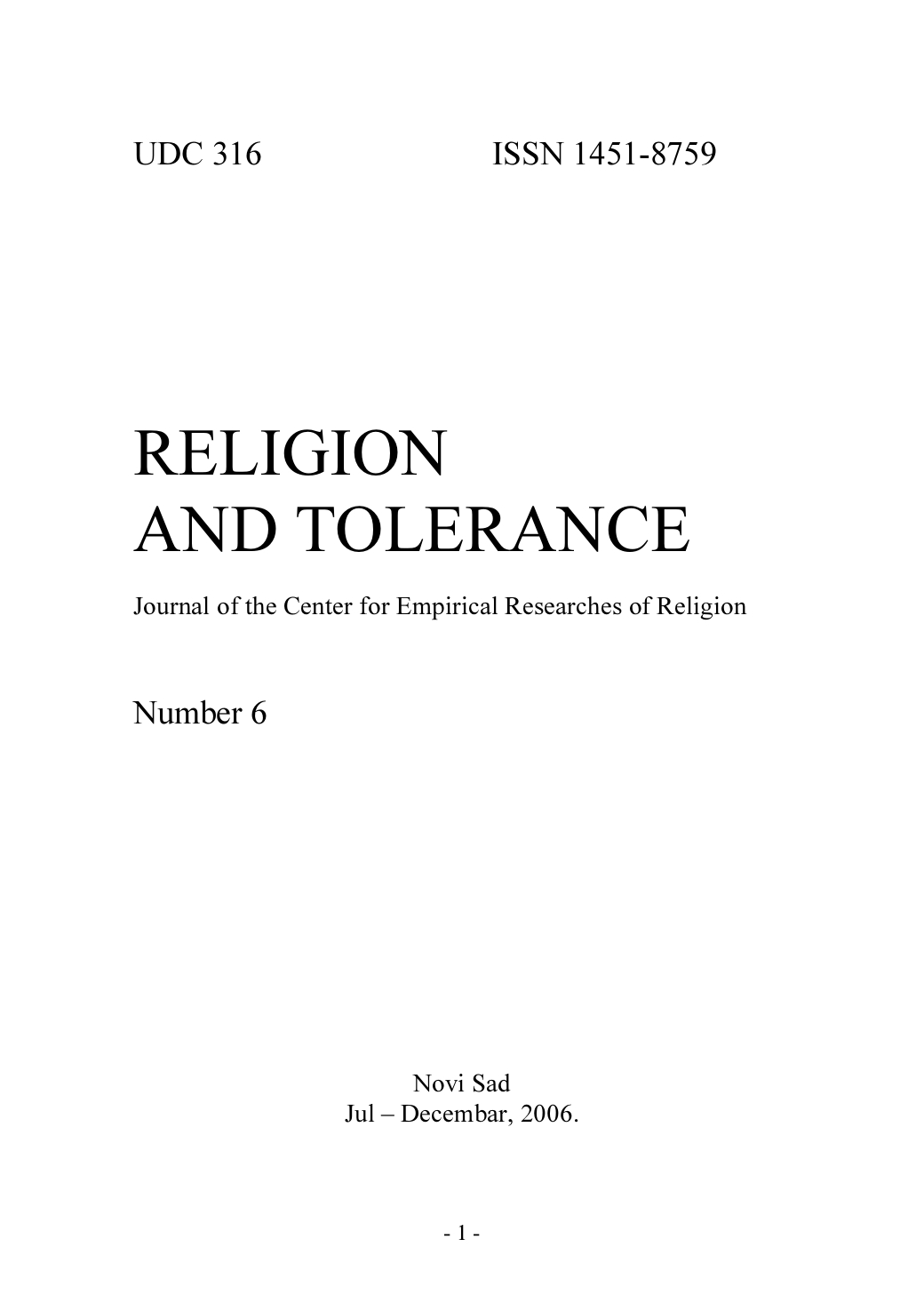ЛИБЕРАЛИЗАМ, РЕЛИГИЈА, ТОЛЕРАНЦИЈА
LIBERALISM, RELIGION, TOLERANCE
Author(s): Zlatiborka Popov MomčinovićSubject(s): Politics / Political Sciences, Theology and Religion, Sociology of Religion
Published by: Centar za empirijska istraživanja religije (CEIR)
Keywords: liberalism; negative freedom tolerance; church; state; democracy; Christianity; West
Summary/Abstract: Liberalism as a political ideology formed in the period of human reason’s awakening from dogmatism promotes the individual and human freedom as the highest social value. This freedom is understood as freedom from different institutionalized collectives (so called negative freedom). In the liberal thinking religion is considered as private sphere and one of the human freedoms, for only in that way the human dignity as individual and religious tolerance can be achieved. Application of liberal principles was not without resistant of society itself (for on the practical level any ideal unfortunately, or luckily, cannot be completely established) and of church and religious communities. Although it seemed that the principles of liberal democracy will be spread all over the world during the so called Huntington’s third wave of democracy, new liberal thinkers, reducing the liberalism to the theory of undisturbed market competition, justify in that way liberalism’s critics from right and left. At the same time, religious revival of different religious groups at the global scene can be perceived, which strive to remerge religion with the public sphere, and the solution of modern global crises see in the returning to God and traditionalism. In such circumstances full of contradictions, the freedom of so called “abstract man” which was promoted by classical liberal thinkers, is endangered and easy to abridge.
Journal: Religija i tolerancija
- Issue Year: 2006
- Issue No: 6
- Page Range: 71-90
- Page Count: 20
- Language: Serbian

